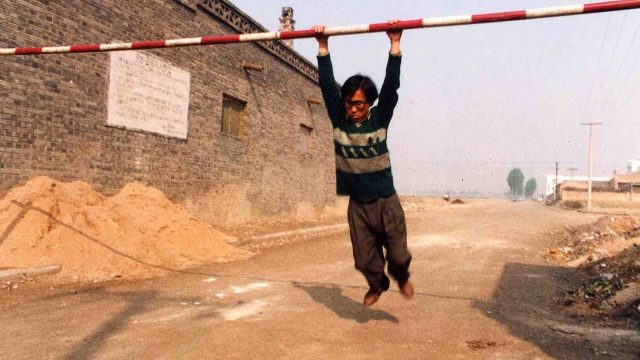Criterion Prediction #153: Xiao Wu, by Alexander Miller
Title: Xiao Wu (aka The Pickpocket)
Year: 1997
Director: Jia Zhangke
Cast: Wang Hongwei, Hao Hongjian, Ma Jinrei, Baitao Zuo
Synopsis: Xiao Wu (Hongwei) is a small-time thief who is adrift in China’s Fengyang County. His cronies and former partners in crime are outgrowing the street life while Xiao seems incapable of maturing. Xiao’s isolation and ennui are heightened when he doesn’t receive an invitation to an old friend’s wedding. This rejection strengthens his alienation. While he finds solace in a relationship with a prostitute, he continues on a path of petty thievery.
Critique: While the two films share the same name in some releases, Jia’s debut feature isn’t a mere remake of Bresson’s classic Pickpocket. In the spirit of Paul Schrader, Olivier Assayas, Jean and Luc Dardenne, Jim Jarmusch, and Martin Scorsese, Jia’s aesthetic turpitude is elevated in his ability to draw not purely stylistic but tonal and atmospheric inspiration from his cinematic progenitor. Jia’s cinema is furnished with a transcendental emphasis on societal and ecological concerns. In Xiao Wu his narrative is supplanted by the cultural miasma that permeated the Chinese people around 1997, a period known as the handover, as Hong Kong’s sovereignty was returned to mainland China after it had been a crown colony for 156 years. The air of uncertainty looms large over the film, and in realizing Xiao Wu’s distorted identity, this tonal inflection is concurrent in the movies slow burning realization. A quiet and thoughtful depiction of modern displacement both regarding the action and style of the film, Xiao Wu exists in an aura of controlled discord. Fengyang, like much of China, is in a state of social and historical transition, the streets look and feel worn, ancient even, but there’s a cacophonous undercurrent populated with buzzing cell phones, beepers, and karaoke bars. The stuffy socialist influence is present, but you can feel the tug of free-market thinking in the awkwardly evolving economic current. Themes of dislocation and the growing tide of social and technological change feature prominently in Jia’s films. With Xiao Wu there’s no wavering or artistic uncertainty. While the edges are rough (a compliment to its neorealist conception), this debut is assuredly crafted.
The film is remarkably conceived on a shoestring budget and what seem to be limited resources. Xiao Wu is sculpted with what would be Jia’s trademark eye and ear for measured detail and mood. Xiao Wu’s presence has a soulful impact, whether he’s palling around in karaoke bars, smoking on a street corner or trying to connect with other people there’s an oracular sensibility that emits from the otherness of Wang Hongwei intuitive performance. But the rigorously subtle direction is the fuel of this masterfully crafted feature that marked the arrival of a new talent.
Why It Belongs in the Collection: While I maintain that Jia is one of the most exciting filmmakers working today, it still feels like his popularity could use a boost, seeing as his name seems to resound (mostly) with members in the critical film community and fans of international cinema. While The Criterion Collection definitely caters to those demographics, a Criterion release of Xiao Wu would be a welcome inclusion to the collection seeing as it would be the first of the directors work to get a spine number and in the spirit of chronology what better place to start than with a strong debut?
More importantly, Xiao Wu is in need of restoration. For the longest time, the film was restricted to bootleg DVDs and VCDs. Thanks to Artificial Eye, Xiao Wu is available on a Region 2 disc but the image is depleted due to being blown up to 35mm, giving it a flat and drenched color palette. Xiao Wu is a film that’s screaming for a Criterion release. An internationally revered director, whose debut feature has been in home video limbo for years now, plus Martin Scorsese has championed it. Given his restoration efforts and the work shared between him and The Criterion Collection, there’s a possibility that he might be working to restore the film.





























